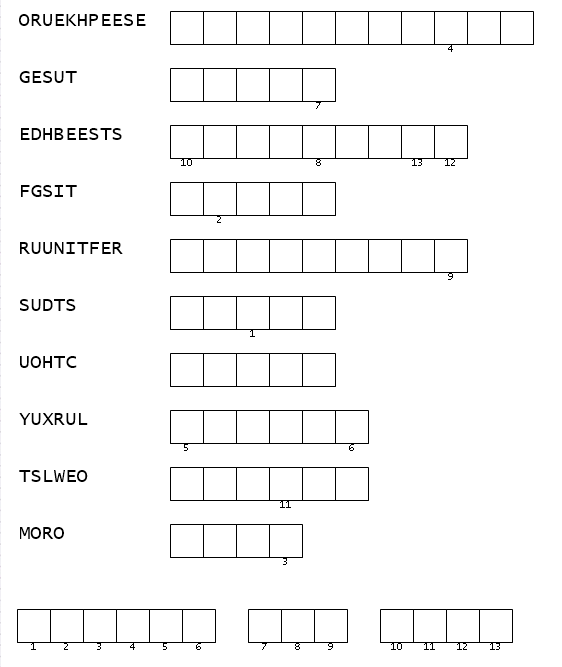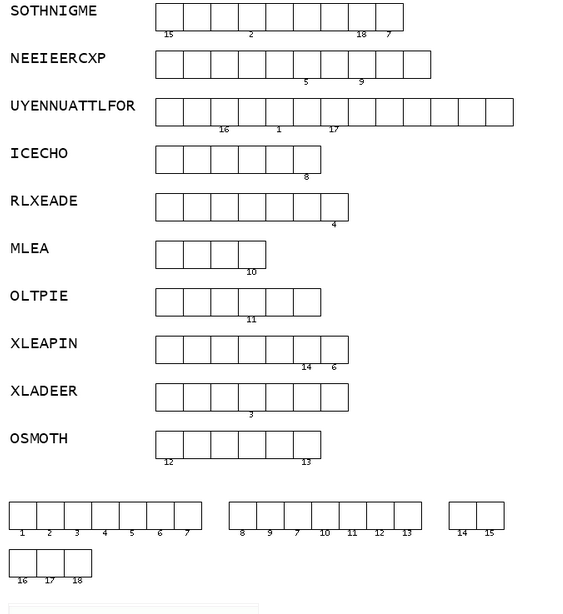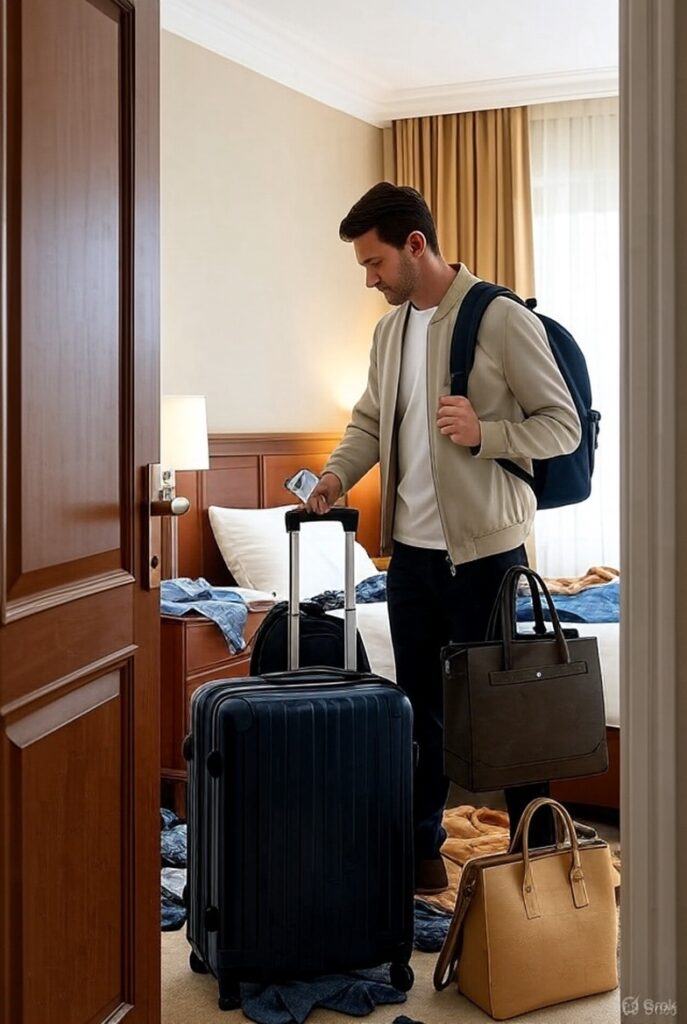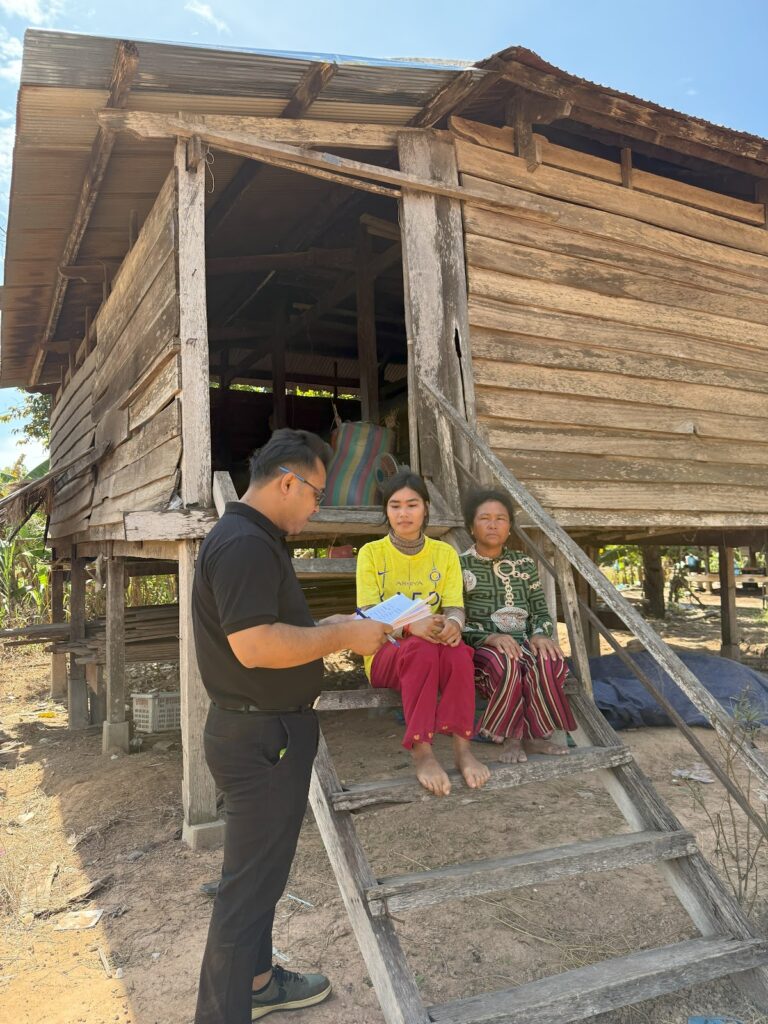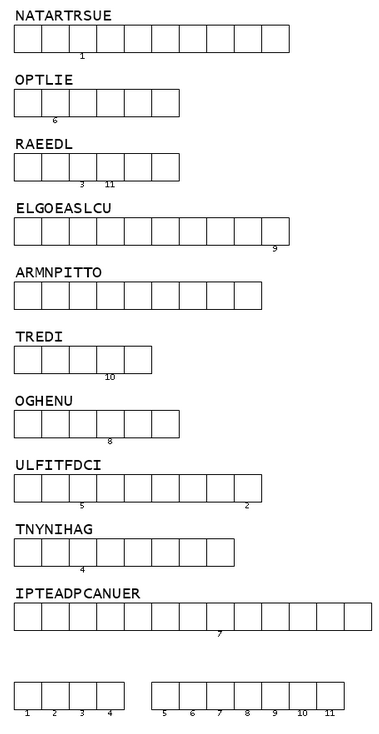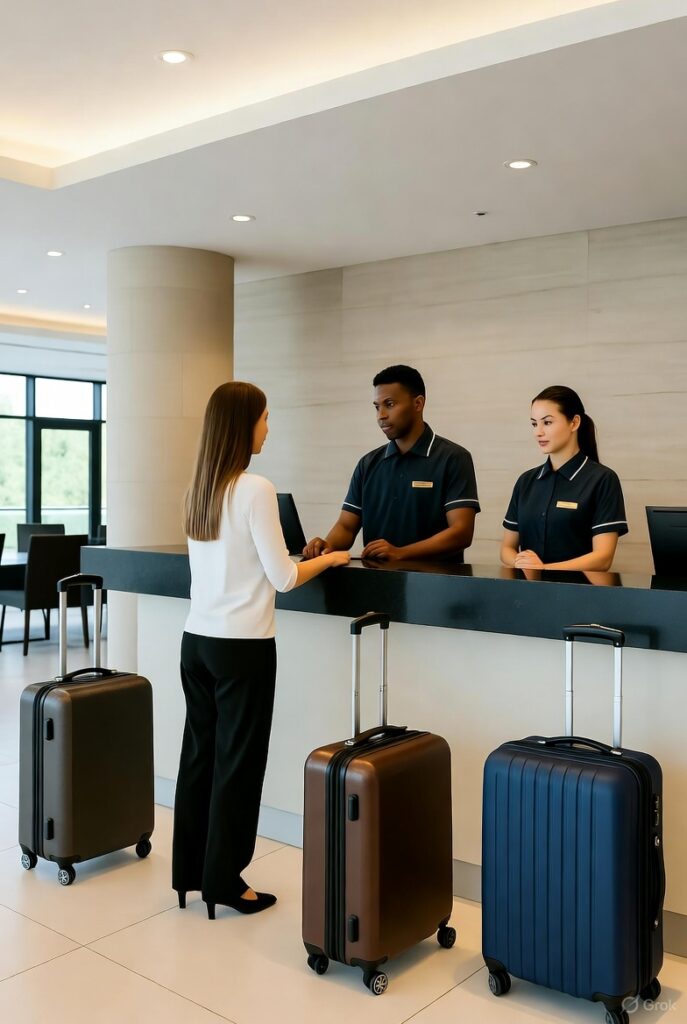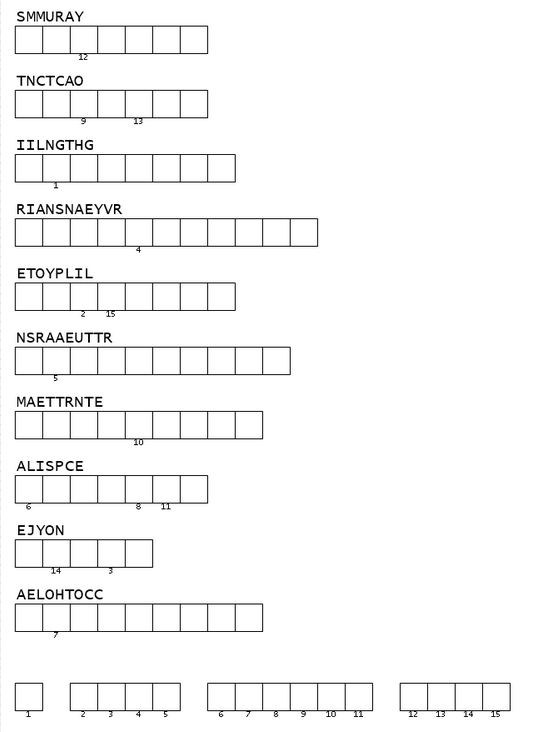- the personal touch makes a difference
- PS: for guests he is John.

A great housekeeper is a very important person in a hotel or resort. They keep the hotel clean, neat, and comfortable for all guests. Housekeepers do many important jobs every day. They clean rooms carefully. They change bedsheets and wash towels. They also make the bathroom tidy. A housekeeper cleans the floors, dusts the furniture, and makes the room look nice and beautiful.
A great housekeeper is also careful and honest. He works hard and always does his best. He notices small problems, like a broken lamp or a dirty corner, and he fixes them before the guests see them. Housekeepers are friendly and polite. They talk kindly to guests and help them when it is needed. They always want guests to feel happy, safe, and comfortable.
Rama is a great housekeeper, but he does more than just cleaning. He adds a personal touch to his work. He leaves small notes in the rooms to welcome guests. He arranges flowers and sometimes adds little gifts like chocolates. Rama remembers the names of returning guests and their favorite rooms. He smiles and talks kindly to everyone. These small actions make the guests feel special and happy. Because of his outstanding performance, he was awarded Housekeeper of the Year in a luxury hotel. Rama’s care and attention make his housekeeping not only perfect and clean but also warm, friendly, and personal.
———————————
Vocabulary:
- Neat – clean and organized
- Carefully – doing something slowly and with attention
- To change bedsheets – take old sheets off the bed and put new ones on
- A towel – cloth used to dry your body or hands
- Tidy – clean and in order
- To dust furniture – clean dust from tables, chairs, and shelves
- To be honest – to tell the truth
- To notice a problem – see or find something that is wrong
- A broken lamp – a lamp that does not work
- A dirty corner – a part of a room that is not clean
- To fix a problem – repair or solve something that is wrong
- To talk kindly – speak in a friendly and polite way
- Comfortable – feeling relaxed and happy
- A personal touch – a small action that makes something special for someone
- To leave a note – write a short message and put it somewhere
- To arrange flowers – put flowers in a nice way for decoration
- To add a gift – give something small to someone
- To remember – not forget, keep something in your mind
- A returning guest – a guest who comes back again
- An outstanding performance – very good work or action
- To be awarded – to get a prize or special recognition
- Attention – care and focus on something
##################
Multiple choice, one answer correct:
- What does neat mean?
a) Clean and in order
b) Very messy and dirty
c) Big and not tidy - What does carefully mean?
a) Doing very fast
b) Doing slowly with care
c) Doing without care - What does to change bedsheets mean?
a) Wash towels in the bathroom
b) Take old sheets and put new ones
c) Clean the floor with water - What is a towel?
a) Something to eat or drink
b) A small soft pillow
c) Cloth used to dry your hands - What does tidy mean?
a) Very messy and dirty
b) Clean and in order
c) Soft and very warm - What does to dust furniture mean?
a) Clean dust from tables and chairs
b) Put flowers on the table
c) Make the lamp very shiny - What does to be honest mean?
a) To talk very quietly
b) To tell the truth
c) To work very fast - What does to notice a problem mean?
a) Clean the whole room
b) Ignore a mistake
c) See something that is wrong - What is a broken lamp?
a) A lamp that does not work
b) A lamp that is very bright
c) A lamp that is new - What is a dirty corner?
a) A corner with toys
b) A part of a room not clean
c) A corner with flowers - What does to fix a problem mean?
a) Leave the room messy
b) Repair something that is wrong
c) Make a new problem - What does to talk kindly mean?
a) Say nothing at all
b) Shout at someone
c) Speak in a friendly way - What does comfortable mean?
a) Feeling very tired
b) Feeling relaxed and happy
c) Feeling cold and hungry - What is a personal touch?
a) A small action to be special
b) Cleaning everything fast
c) A very big action - What does to leave a note mean?
a) Write a short message and put it
b) Take a message away
c) Speak to someone loudly - What does to arrange flowers mean?
a) Water the plants every day
b) Put flowers nicely for decoration
c) Cut the flowers in the garden - What does to add a gift mean?
a) Give something small to someone
b) Take a gift away
c) Hide something in the room - What does to remember mean?
a) Look at something fast
b) Throw something away
c) Not forget and keep in mind
——–end of audio file—– - What is a returning guest?
a) A new guest in the hotel
b) A guest who comes back again
c) A guest who is leaving soon - What is an outstanding performance?
a) Very good work or action
b) Very bad work and action
c) Work done very slowly - What does to be awarded mean?
a) To clean the room quickly
b) To write a note for guests
c) To get a prize or special recognition - What is attention?
a) Care and focus on something
b) Doing many things very fast
c) Talking loudly all the time
Answers.
- a) 2. b) 3. b) 4. c) 5. b) 6. a) 7. b)
8. c) 9. a) 10. b) 11. b) 12. c) 13. b)
14. a) 15. a) 16. b) 17. a) 18. c) 19. b)
20. a) 21. c) 22. a)
___________________
Correct version:
- What does neat mean – Clean and in order
- What does carefully mean – Doing slowly with care
- What does to change bedsheets mean – Take old sheets and put new ones
- What is a towel – Cloth used to dry your hands
- What does tidy mean – Clean and in order
- What does to dust furniture mean – Clean dust from tables and chairs
- What does to be honest mean – To tell the truth
- What does to notice a problem mean – See something that is wrong
- What is a broken lamp – A lamp that does not work
- What is a dirty corner – A part of a room not clean
- What does to fix a problem mean – Repair something that is wrong
- What does to talk kindly mean – Speak in a friendly way
- What does comfortable mean – Feeling relaxed and happy
- What is a personal touch mean – A small action to be special
- What does to leave a note mean – Speak to someone loudly
- What does to arrange flowers mean – Water the plants every day
- What does to add a gift mean – Give something small to someone
- What does to remember mean – Look at something fast
- What is a returning guest – A guest who is leaving soon
- What is an outstanding performance – Work done very slowly
- What does to be awarded mean – To get a prize or special recognition
- What is attention – Doing many things very fast
#####################
Gap-fill exercise:
- A great housekeeper keeps the hotel ______ and clean.
a) neat
b) comfortable
c) honest - Rama works ______ when he cleans the rooms.
a) carefully
b) attention
c) a towel - Every day he has to ______ bedsheets for the guests.
a) buy
b) arrange
c) leave - He puts a clean ______ in the bathroom.
a) towel
b) note
c) flowers - He keeps the rooms ______ and in order.
a) outstanding
b) broken
c) tidy - He ______ the furniture every morning.
a) cleans
b) dusts
c) adds - Rama is always ______ to the guests.
a) honest
b) comfortable
c) neat - He can ______ small problems before the guests see them.
a) leave
b) add
c) notice - A ______ lamp must be fixed quickly.
a) broken
b) clean
c) tidy - He cleans every ______ corner.
a) personal
b) dirty
c) outstanding - If there is a problem, he can ______ it immediately.
a) notice
b) remember
c) fix - He always ______ kindly to the guests.
a) dusts
b) talks
c) leaves - Guests feel ______ in the rooms Rama cleans.
a) comfortable
b) broken
c) neat - Rama adds a ______ touch to the rooms.
a) careful
b) dirty
c) personal - He sometimes ______ a note for the guests.
a) leaves
b) notices
c) changes - He can ______ flowers nicely in the room.
a) dust
b) arrange
c) fix - He may also ______ a small gift for a guest.
a) notice
b) clean
c) add - Rama can always ______ the names of returning guests.
a) talk
b) remember
c) leave - A ______ guest comes back to the hotel again.
a) returning
b) broken
c) personal - Rama’s work is an ______ performance.
a) dirty
b) tidy
c) outstanding - Because of his work, he was ______ housekeeper of the year.
a) awarded
b) neat
c) careful - Rama pays close ______ to all small details.
a) towel
b) attention
c) note
Answers:
- b 2. a 3. c 4. a 5. c 6. b 7. a 8. c
9. a 10. b 11. c 12. b 13. a 14. c 15. a
16. b 17. c 18. b 19. a 20. c 21. a 22. a
————————–
Correct version:
- A great housekeeper keeps the hotel neat and clean.
- Rama works carefully when he cleans the rooms.
- Every day he has to change bedsheets for the guests.
- He puts a clean towel in the bathroom.
- He keeps the rooms tidy and in order.
- He dusts the furniture every morning.
- Rama is always honest to the guests.
- He can notice small problems before the guests see them.
- A broken lamp must be fixed quickly.
- He cleans every dirty corner.
- If there is a problem, he can fix it immediately.
- He always talks kindly to the guests.
- Guests feel comfortable in the rooms Rama cleans.
- Rama adds a personal touch to the rooms.
- He sometimes leaves a note for the guests.
- He can arrange flowers nicely in the room.
- He may also add a small gift for a guest.
- Rama can always remember the names of returning guests.
- A returning guest comes back to the hotel again.
- Rama’s work is an outstanding performance.
- Because of his work, he was awarded housekeeper of the year.
- Rama pays close attention to all small details.
##################
Word-definition match exercise:
Words;
- neatness
- careful work
- towel
- tidiness
- dusting
- honesty
- noticing a problem
- broken lamp
- fixing a problem
- friendly talk
- comfort
- personal touch
- leaving a note
- arranging flowers
Definitions:
a. A lamp or thing that does not work
b. Clean and in order
c. A small action to make something special
d. Do something slowly with care
e. To put flowers nicely in order
f. Feeling relaxed and happy
g. Always telling the truth
h. A cloth used to dry your hands or body
i. Remove dust from furniture
j. To repair something that is wrong
k. Writing a short message for someone
l. Speaking in a friendly way
m. Seeing that something is wrong
n. Clean and organized
___________________
Answers:
1 – b, 2 – d, 3 – h, 4 – n, 5 – i, 6 – g,
7 – m, 8 – a, 9 – j, 10 – l, 11 – f,
12 – c, 13 – k, 14 – e
___________________
Correct version:
- neatness – Clean and in order
- careful work – Do something slowly with care
- towel – A cloth used to dry your hands or body
- tidiness – Clean and organized
- dusting – Remove dust from furniture
- honesty – Always telling the truth
- noticing a problem – Seeing that something is wrong
- broken lamp – A lamp or thing that does not work
- fixing a problem – To repair something that is wrong
- friendly talk – Speaking in a friendly way
- comfort – Feeling relaxed and happy
- personal touch – A small action to make something special
- leaving a note – Writing a short message for someone
- arranging flowers – To put flowers nicely in order
##################
True or false:
- Housekeepers always leave dirty towels in the room.
- Rama arranges flowers to make the room look nice.
- Guests feel comfortable when rooms are tidy and clean.
- A broken lamp should not be fixed by a housekeeper.
- Housekeepers dust furniture to remove dirt.
- Personal touches make guests feel special.
- Leaving a note for guests is a way to welcome them.
- A housekeeper never notices small problems in the room.
- Honest housekeepers always tell the truth to guests.
- Comfort means guests feel tired and unhappy in the room.
- Neat rooms are clean and in order.
- Arranging flowers is part of housekeeping.
- Dusting furniture makes rooms dirtier.
- A returning guest is someone who comes back to the hotel.
__________________
True: 2,3,5,6,7,9,11,12,14
__________________
Correct version:
- Housekeepers always leave dirty towels in the room. True is: Housekeepers always replace dirty towels with clean ones.
- Rama arranges flowers to make the room look nice.
- Guests feel comfortable when rooms are tidy and clean.
- A broken lamp should not be fixed by a housekeeper. True is: A broken lamp should be fixed by a housekeeper.
- Housekeepers dust furniture to remove dirt.
- Personal touches make guests feel special.
- Leaving a note for guests is a way to welcome them.
- A housekeeper never notices small problems in the room. True is: A housekeeper notices small problems in the room.
- Honest housekeepers always tell the truth to guests.
- Comfort means guests feel tired and unhappy in the room. True is: Comfort means guests feel relaxed and happy in the room.
- Neat rooms are clean and in order.
- Arranging flowers is part of housekeeping.
- Dusting furniture makes rooms dirtier. True is: Dusting furniture removes dust and makes rooms cleaner.
- A returning guest is someone who comes back to the hotel.
###################
Interview with Rama – Housekeeper of the Year,
fill in, words below:
mistakes – happy – luxury – feel – dust – broken –
detail – before – names – bedsheets –
attention – immediately –
politely – arrange
———————————-
- Interviewer: Hello, Rama! What is your job?
Rama: Hello! I am a housekeeper in a__________ hotel. - Interviewer: What do you do every day?
Rama: I clean rooms, change __________, wash towels, and tidy bathrooms. - Interviewer: Do you also clean the furniture?
Rama: Yes, I __________ all the furniture and make the room look nice. - Interviewer: How do you work?
Rama: I work carefully and pay attention to every small ______________. - Interviewer: What does “carefully” mean for you?
Rama: It means I do everything slowly and correctly, without __________. - Interviewer: Do you notice small problems in the rooms?
Rama: Yes, I always notice problems __________ the guests see them. - Interviewer: Can you give an example of a problem?
Rama: A __________ lamp or a dirty corner is a problem I fix. - Interviewer: How do you fix a problem?
Rama: I repair or clean it __________ so the guest is happy. - Interviewer: Do you talk to the guests?
Rama: Yes, I always talk kindly and __________to every guest. - Interviewer: How do guests feel in your rooms?
Rama: Guests feel comfortable, __________, and safe. - Interviewer: Do you add a personal touch to your work?
Rama: Yes, I leave small notes, __________ flowers, or add little gifts. - Interviewer: Do you remember returning guests?
Rama: Yes, I remember their __________ and favorite rooms. - Interviewer: Why do you think you got the award?
Rama: Because of my careful work, honesty, and __________ to guests. - Interviewer: What is the most important part of your job?
Rama: Making guests __________ special, comfortable, and happy every day.
________________________
Correct version:
Interview with Rama – Housekeeper of the Year
- Interviewer: Hello, Rama! What is your job?
Rama: Hello! I am a housekeeper in a luxury hotel. - Interviewer: What do you do every day?
Rama: I clean rooms, change bedsheets, wash towels, and tidy bathrooms. - Interviewer: Do you also clean the furniture?
Rama: Yes, I dust all the furniture and make the room look nice. - Interviewer: How do you work?
Rama: I work carefully and pay attention to every small detail. - Interviewer: What does “carefully” mean for you?
Rama: It means I do everything slowly and correctly, without mistakes. - Interviewer: Do you notice small problems in the rooms?
Rama: Yes, I always notice problems before the guests see them. - Interviewer: Can you give an example of a problem?
Rama: A broken lamp or a dirty corner is a problem I fix. - Interviewer: How do you fix a problem?
Rama: I repair or clean it immediately so the guest is happy. - Interviewer: Do you talk to the guests?
Rama: Yes, I always talk kindly and politely to every guest. - Interviewer: How do guests feel in your rooms?
Rama: Guests feel comfortable, happy, and safe. - Interviewer: Do you add a personal touch to your work?
Rama: Yes, I leave small notes, arrange flowers, or add little gifts. - Interviewer: Do you remember returning guests?
Rama: Yes, I remember their names and favorite rooms. - Interviewer: Why do you think you got the award?
Rama: Because of my careful work, honesty, and attention to guests. - Interviewer: What is the most important part of your job?
Rama: Making guests feel special, comfortable, and happy every day.
##################
Hello, my name is Rama.
I am a housekeeper in a luxury hotel.
Every day I clean rooms, change bedsheets, wash towels, and tidy bathrooms.
I dust furniture and make everything neat and beautiful.
I work carefully and always notice small problems before the guests see them.
I am honest and polite.
I also add a personal touch:
I leave notes, arrange flowers, and sometimes give little gifts.
I remember returning guests and their favorite rooms.
Because of my careful work and attention, I was awarded Housekeeper of the Year. I love my job.
———————————–
Now rewrite the story starting with
>>>>>>>>>>His name is Rama.
>>>>>>>>>>He is a housekeeper………
and make all changes necessary.
———————————-
Correct version:
His name is Rama. He is a housekeeper in a luxury hotel. Every day he cleans rooms, changes bedsheets, washes towels, and tidies bathrooms. He dusts furniture and makes everything neat and beautiful. He works carefully and always notices small problems before the guests see them. He is honest and polite to everyone. Rama also adds a personal touch: he leaves notes, arranges flowers, and sometimes gives little gifts. He remembers returning guests and their favorite rooms. Because of his careful work and attention, he was awarded Housekeeper of the Year. He loves his job very much.
################
Words scrambled, which phrase are we looking for?
